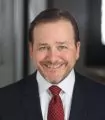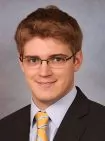In a decision that could significantly strengthen the rights of creators of fair use derivative works, the Second Circuit affirmed a judgment in favor of the creator of a parody play who sued a third party for copyright infringement. Although the rights of authors to make fair use of copyright-protected works is universally acknowledged, the question of fair use typically arises as a defense in an infringement suit brought by the owner of the original work. In Keeling v. Hars, the Second Circuit faced the unusual question of whether the creators of fair use derivative works can themselves bring suits for infringement against third parties.
Following the cult success of the 1991 movie Point Break, Jaime Keeling created a parody stage adaptation of the film, borrowing the characters, plot elements and dialogue from the original and adding humorous elements to create an "irreverent, interactive theatrical experience." In 2007, defendant Hars obtained a license from Keeling allowing her to stage a two-month production run of the play. During that time, "Hars came to believe that Keeling did not lawfully own any rights to the . . . play," and when the license ended, Hars sought to renegotiate the agreement to continue producing the play without payment of royalties. Keeling refused to renegotiate. After Hars continued producing the show without paying royalties, Keeling brought suit for copyright infringement.
The district court denied defendants' motion to dismiss and motions for summary judgment, rejecting defendants' primary argument that, as an unauthorized derivative work, Keeling's parody was not entitled to copyright protection. The case was then tried to a jury. In instructing the jury, the district court did not explicitly enumerate the statutory factors pertaining to fair use, but rather provided a lengthy narrative description of fair use intended to "put a little more content on the discussion." Neither party objected to the jury instructions.
The jury subsequently returned a verdict of infringement. Hars appealed, challenging Keeling's ability to assert copyright in an unauthorized derivative work, whether Keeling's contribution of individually noncopyrightable elements could support copyright in the work, and the district court's jury instruction.
The Second Circuit, in an opinion by Judge Cabranes, affirmed. The court noted that while unauthorized derivative works are not typically afforded copyright protection because they infringe on the rights of the original author, the Copyright Act expressly allows for the creation of unauthorized fair use works that are not infringing, and the Supreme Court has held that parody can qualify as fair use. The court also noted that the statute provides that derivative works are entitled to "independent" copyright protection and that, while that protection expressly does not extend to material that has been used "unlawfully," fair use works are lawful. Therefore, the Court of Appeals held that unauthorized derivative works—if fair use— are entitled to copyright protection. The court also found this reading consistent with the legislative history, which discussed copyright protection for works incorporating lawful but unauthorized reproductions. Additionally, the court held that while the individual elements Keeling added to the original work were not protectable, the selection and arrangement of those elements as a whole was clearly protectable.
Finally, the court held that the issues Hars raised about the jury instructions did not constitute plain error. In particular, the court held that the jury was properly instructed on originality, and while it is "safer" for a judge to explain the application of all four of the statutory factors governing fair use, the factors can differ in their weight and application, and further, Hars failed to make any showing that any error, if it existed, was prejudicial.
The Second Circuit's ruling makes clear that the authors of unauthorized derivative works that constitute fair use have rights in those works that can be offensively asserted in copyright actions. Third parties seeking to copy or use existing works must be conscious not only of the rights of the original authors, but also the rights of those derivative works authors who came before them.
The case is Keeling v. Hars, No. 13-694-CV, 2015 WL 6600571, 2015 U.S. App. LEXIS 19085 (2d Cir. Oct. 30, 2015).
The content of this article is intended to provide a general guide to the subject matter. Specialist advice should be sought about your specific circumstances.


